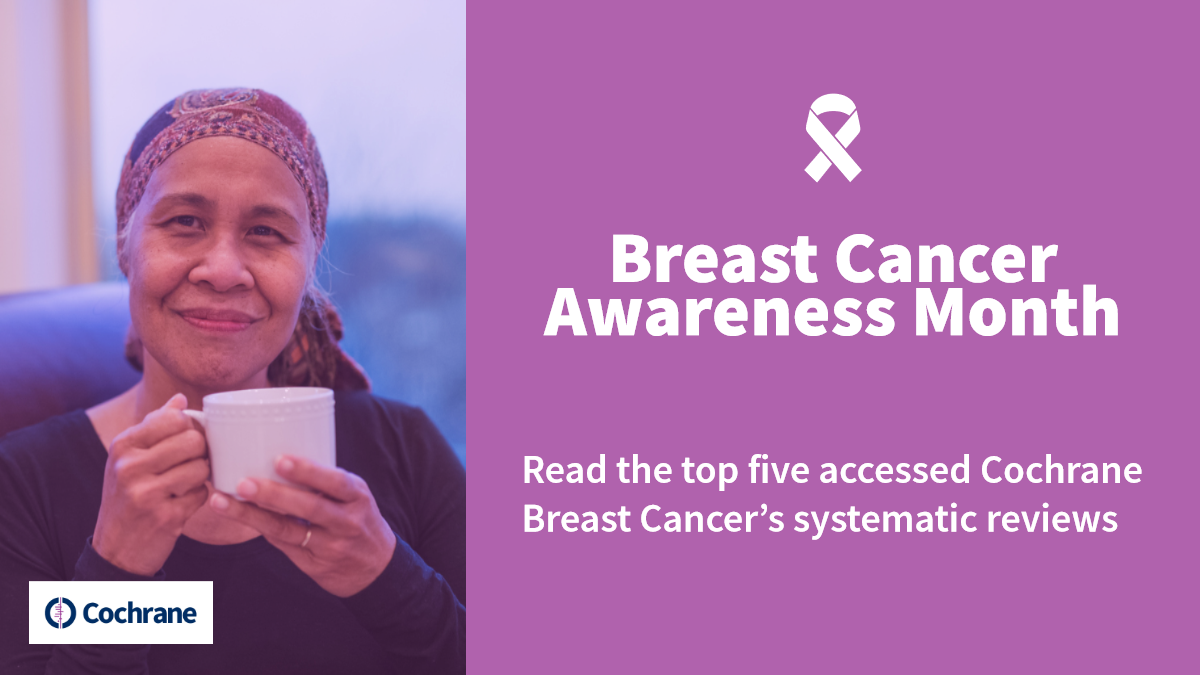
Breast Cancer Awareness Month happens every October and is a month which organizations around the world concentrate their efforts on raising awareness about the disease.
Cochrane Breast Cancer's objective is to provide the best source of accurate and up-to-date information, especially about the prevention, early detection, treatments, follow-up care, and supportive practices for women diagnosed with breast cancer. Their Cochrane Reviews continue to be an integral part of national and international clinical best practice guidelines and their development of Plain Language Summaries provide evidence to policymakers and members of the community in easy to understand language.
- Visit the Cochrane Breast Cancer website
- Read the Evidently Cochrane blog post 'Breast Cancer: your treatment, your choice.'

Read the top five accessed Cochrane Breast Cancer's Reviews:
- Exercise for women receiving chemotherapy or radiation therapy or both for breast cancer
- Yoga for women with a diagnosis of breast cancer
- Surgical removal of underarm lymph nodes in breast cancer
- Bisphosphonates and other bone agents for breast cancer
- Interventions for raising breast cancer awareness in women
Help prioritise breast cancer topics for future Cochrane Reviews
In one form or another, we all seem to innately prioritise tasks based on resources (i.e. time, finances, etc.). One of Cochrane’s goals is to prioritise review topics based on a formal prioritisation process, with the aim being that the most relevant and useful reviews are available to its readers. This year, the Cochrane Breast Cancer Group plans to prioritise the breast cancer review topics that will be developed or updated in the Cochrane Library. The Group will achieve this goal by asking individuals, medical colleges or societies, advocacy groups and other key breast cancer organisations to contribute to the development of a priority list of Cochrane breast cancer reviews. You can take the survey here. If there are any issues with the survey, please use another web browser. We apologise for the inconvenience caused.
